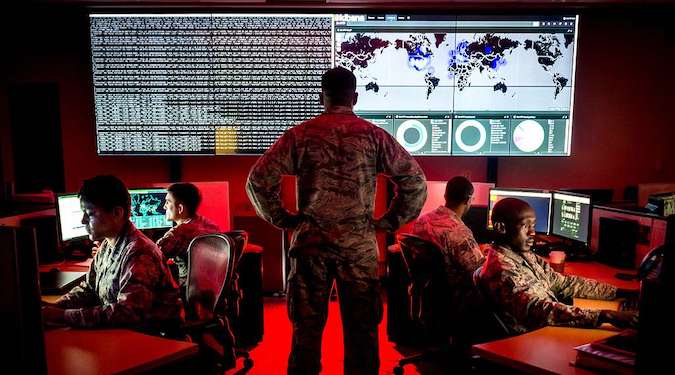Christopher Mohr analyzes the opportunities and hacking and other risks of incorporating machine learning into military logistics and identifies legal and security gaps that make incorporation difficult. Mohr begins by providing background on artificial intelligence and machine learning and describes how these tools can improve military logistics. Mohr also identifies types of cyberattacks that states… Continue reading Zero-Day Delivery: Hacking Risks and the Use of Machine Learning for Military Logistics
Tag: Cybersecurity
A New Framework for Cyber Operations: Reevaluating Traditional Military Activities and Intelligence Collection in the Digital Age
Maj. Jeremy Watford examines the historic divide between military operations and intelligence collection—particularly when it comes to statutory authority and oversight responsibilities—and discusses how modern cyber operations complicates this separation. Watford proposes a new framework to resolve the current tensions in military and intelligence operations largely caused by “bureaucratic territoriality” and to account for the… Continue reading A New Framework for Cyber Operations: Reevaluating Traditional Military Activities and Intelligence Collection in the Digital Age
Why is the “Spectrum Model” of Internationally Wrongful Acts Problematic in Cyberspace?
There are generally four concepts in international law that describe a state’s wrongful acts: violation of sovereignty, prohibited intervention, use of force, and armed attack. These four concepts emerged in the pre-internet era, thus the application of them in cyberspace has caused many disagreements. However, notwithstanding the disagreements on the scope of any particular concepts,… Continue reading Why is the “Spectrum Model” of Internationally Wrongful Acts Problematic in Cyberspace?



